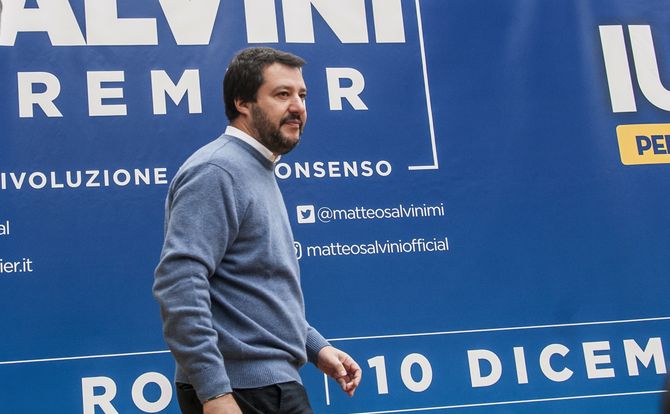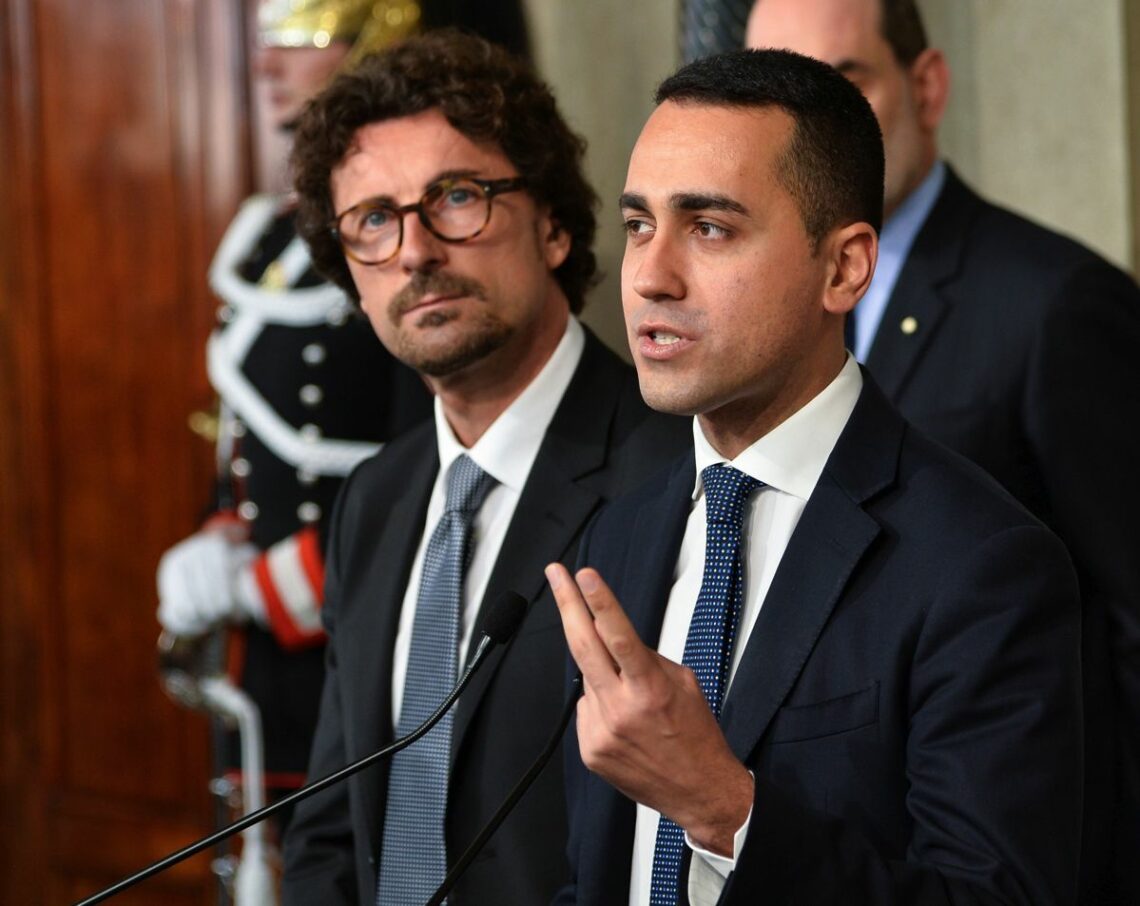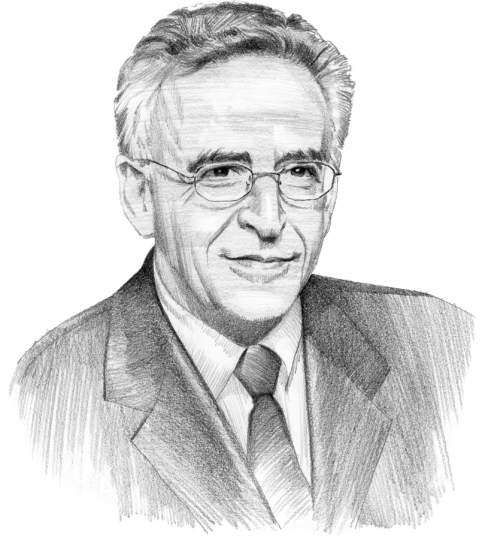Italy – the West’s weakest link?
There is growing concern in Europe and the United States that Italy could turn out to be the weakest link in the chain of resistance to Russian misconduct. Its rising parties of protest, the Five Star Movement and La Lega, want sanctions against Russia dropped. But Italy has always fancied itself a bridge between East and West.

In a nutshell
- Two of Italy’s three biggest parties, M5S and La Lega, have close Russian ties
- Italy’s mainstream right and left also want to act as a bridge between East and West
- But even if it flirts with Russia, Italy remains solidly anchored in the Western alliance
There is growing concern that Italy could turn out to be the weakest link in the Western alliance’s resistance to Russian misconduct, whether in Western Europe, Ukraine or Syria. Consternation at this prospect has increased with Russia’s use of chemical weapons in the United Kingdom, followed by diplomatic and military reprisals by the UK, the United States and their NATO allies in Europe.
“We’ll get rid of these absurd sanctions (against Russia) that are doing such incalculable damage to the Italian economy,” tweeted Matteo Salvini, one of Italy’s most powerful politicians, on April 2. Mr. Salvini is the leader of La Lega (formerly the Northern League), a Euroskeptic, anti-immigration movement that became Italy’s largest right-wing party and one of two antiestablishment groupings to top the polls in the March 4 general elections. La Lega is particularly strong in northern Italy, where many small manufacturers have lost export sales due to sanctions on Russia and are anxious about fresh U.S. restrictions on companies doing business with the Russian government or oligarchs in President Vladimir Putin’s inner circle.
Mr. Salvini visited Crimea soon after its annexation by Russia in 2014, and last year his party signed a cooperation agreement with Mr. Putin’s United Russia party. He opposed the decision by Western countries, including Italy, to expel Russian diplomats after the March 4, 2018 nerve gas attack on former Russian spy Sergei Srkipal in Salisbury, England, as well as the Western missile strikes against Syria in April, following the use of chemical weapons there. Denying reports of Russian financial support for La Lega, Mr. Salvini retorted: “I think Putin is a great man and I think it for free.”
Different bases
The Five Star Movement (M5S), founded by comedian Beppe Grillo and now led by 31-year-old Luigi di Maio, won more votes than any Italian party in the March election (32.4 percent). Its populist program spans political divides but is clearly to the left of La Lega. The two movements share concerns about immigration, though M5S expresses these in milder terms. The movement is particularly strong in the poorer, southern part of the country, which suffers from high unemployment, underinvestment and a brain drain. Consequently, M5S, unlike the business-oriented Lega, favors a minimum income scheme. As electoral success beckoned, it toned down its euroskeptic language, which was largely a response to the fiscal austerity measures being demanded by the European Union’s central authorities.
Russian opposition activist Alexey Navalny has denounced the Kremlin’s links with La Lega and M5S.
The M5S platform calls for the immediate lifting of sanctions against Russia, which it considers a “fundamental strategic partner.” The EU, by contrast, has come to view Russia as a “key strategic challenge” in light of its actions in Ukraine and Syria, along with its alleged interference in European countries, including the use of disinformation and fake news. The Five Star leadership has identified Eurasia as the powerhouse and key economic partner of the future, dovetailing with Moscow’s current doctrine that “greater Eurasia,” and not the EU or NATO, provides the key to Europe’s future security and prosperity. Misleading stories on websites close to M5S have also been traced to Russian sources.
The Russian opposition activist Alexey Navalny, who was excluded from the Russian presidential election this spring, has denounced the Kremlin’s links with La Lega and M5S. In an interview earlier this year, Mr. Navalny pointed out the ideological differences between these movements and the Kremlin and said that Italy’s relations should be with the Russian people, not with oligarchs.
Even with the current impasse in coalition negotiations, it is always possible that La Lega and M5S could end up forming a government, despite their very different bases of support and seemingly incompatible social and economic policies. Alternatively, one of these movements could join a coalition government with one or more mainstream parties, assuming sufficient votes could be scraped together in parliament. For now, both Mr. Di Maio and Mr. Salvini seem to favor calling a new election this summer, on the assumption that the political deadlock of the past two months will deepen the public’s rejection of mainstream politicians.
Bridge to Russia
Among those claiming that Russia sought to influence the Italian 2018 parliamentary election in favor of La Lega and M5S was the former U.S. Vice President Joe Biden. His allegation was denied by both parties. A lengthy minority report, prepared by Democratic members of the U.S. Senate’s Committee on Foreign Relations, and based on secondary sources, drew attention to links between Russia and the two populist movements as part of a wider Russian effort to influence Italian opinion through media and business interests. Europeans, too, have expressed similar anxieties.
Despite real concerns about the foreign policy orientations of La Lega and M5S, they are more likely to continue than change policies toward Russia if they enter government. For decades, Italy has portrayed itself as a bridge between East and West. The Italian Communist Party (PCI) was an important, though declining, political force until 1991, when it was dissolved into the Democratic Party of the Left – the predecessor of the Democratic Party (PD), which is now running Italy’s caretaker government. The PCI fostered close links with the Soviet Union, while in practice adopting independent “Eurocommunist” positions and entering a historical compromise (Compromesso storico) with the Christian Democrats in the 1970s. The latter were strongly influenced by the Vatican, which has at times pursued reconciliation with the Russian Orthodox Church, now closely tied into Mr. Putin’s conservative nationalist ideology.

Supporters of the successor parties to the PCI and Christian Democrats, especially the PD and Forza Italia, are often imbued with a similar vision of Italy’s role in easing east-west tensions. Two-thirds of Italians do not perceive Russia as a threat, though a similar proportion lack trust in Mr. Putin. In this sense, today’s populist parties simply echo views that are general among the Italian public, even if they are sharpened by an ideological hostility to NATO, the EU and the “liberal international order.”
Forza Italia, its leader Silvio Berlusconi and his media outlets all advocate close links between Italy, the EU and Russia, oppose sanctions and minimize allegations of Russian misconduct. They have few commercial or personal interests in Ukraine and have been sharply critical of rule-of-law failings there, on issues ranging from violation of Italian intellectual property to corruption.
Romano Prodi, a former European Commission President and former Italian Prime Minister for the “Olive Tree” coalition and the PD, has called for the immediate lifting of sanctions against Russia and a rapprochement with Russia. But the PD, which has led the government under three prime ministers since 2013, in practice follows a pragmatic foreign policy, broadly aligned with its Western partners – including the expulsion of Russian diplomats following the Salisbury nerve gas attack in March. The fact that only two diplomats were expelled – compared with four each by France, Germany and Poland – shows Italy’s relative lack of interest in confronting Moscow.
Closet pragmatist
The M5S leader, Luigi di Maio, remained silent following Italy’s official announcement, striking a moderate pose while maneuvering to form a government. However, La Lega’s Matteo Salvini denounced the expulsions. Similar differences appeared over the missile strikes against Syria by the U.S., the UK and France. While M5S reaffirmed Italy’s loyalty to the Western alliance, Lega spokesmen condemned the attacks and NATO warmongering in general, claiming that the contrast with President Putin showed the latter to be among the world’s “most lucid and farsighted statesmen.”
Such divergences illustrate the gulf between M5S and La Lega on Russia and other issues. La Lega values Russian media coverage and political support as a means to project itself beyond its regional base in northern Italy. Mr. Salvini sees Russia as a major power, which shares his party’s opposition to elite, leftist and EU positions on social questions and immigration.
The Five Star leadership has noticeably backed away from radical positions on NATO and Russia.
The M5S also gains visibility from Russian media and shares their hostility toward the EU, though mainly due to resentment at EU-prescribed austerity policies and the failure to help Italy cope with migration. What attracts M5S most is Mr. Putin’s insistence on the principle of sovereignty and Moscow’s long-held doctrine that NATO should be replaced by an all-European security organization. Even so, the Five Star leadership has noticeably backed away from radical positions on these issues as it weighs possible entry into government.
These countervailing pressures are exemplified by jockeying over the Trans-Adriatic Pipeline (TAP), which is supposed to deliver natural gas from Azerbaijan to Italy, reducing dependence on Russian supplies. TAP is the last stage of a 3,500-kilometer pipeline built at a total cost of approximately $40 billion. The European Commission and the European Parliament have made TAP a top priority (designating it a “Project of Common Interest”), helping it secure a loan of 1.5 billon euros from the European Investment Bank. It forms a key element of the EU’s strategy to diversify energy supplies away from Russia and enhance the bloc’s energy security.
M5S opposes TAP as unnecessary and harmful to the environment, a mega-project that will perpetuate Italy’s dependence on hydrocarbons. Its position is deeply enmeshed with local politics in Puglia, the region where the pipeline will make landfall. Critics of M5S have jibed that the movement would not oppose TAP if it were a Russian project. But the evidence suggests that there is a temporary and probably ephemeral coincidence of interests between M5S and Russia over TAP. Insiders are confident that, with billions invested and the EU engaged, the project will go ahead, even if M5S forms part of a future government in Rome.
Solidly anchored
President Putin’s orthodox nationalist ideology and social conservatism find an echo in populist slogans. As they draw closer to national political office, La Lega and M5S have attracted more support from Moscow. But Kremlin realists are also cautious about the populists’ lack of foreign policy experience and unpredictability. As in the past, Moscow can be expected to engage pragmatically with different forces in Italy, adjusting its tactics to their political prospects and the potential payoff.
Successive Italian governments have sought closer links with Moscow, mainly to advance business and/or personal interests, while at the same time remaining firmly embedded in NATO and the EU. Western solidarity might receive a jolt in the unlikely event that La Lega and M5S patch up their differences and agree to govern together. Italy might then become more vociferous when sanctions come up for renewal in Brussels, depending also on what happens in Syria.
But whoever governs in Rome, Italy will continue to be subject to numerous political, institutional, financial, business and security constraints that bind it to the Western alliance. Whatever the domestic political constellation, the country will remain a firm EU member and NATO ally, even if appears sometimes wayward and impulsive.






